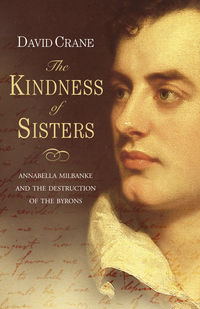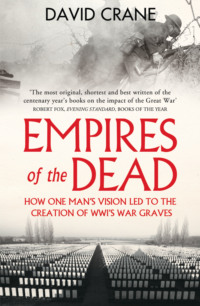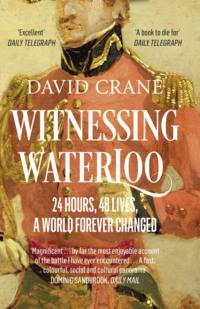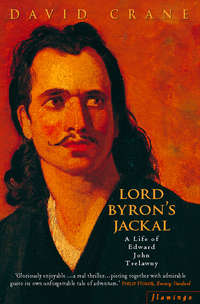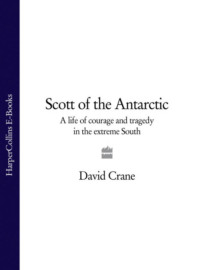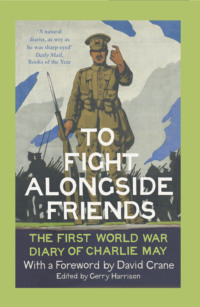
Полная версия
Men of War: The Changing Face of Heroism in the 19th Century Navy
‘The annals of chivalry’ had nothing to match the exploits of Peel and his young ‘pages’ in the Crimea, Lord Lyons, the Commander-in-Chief in the Black Sea, would tell an enraptured Guildhall audience at a banquet to celebrate the end of the Crimean War, and the greater the moral and physical degradation around him, the more brilliantly Peel’s armour shone. Nobody who saw him under fire in the trenches of the Crimea would ever forget his air of quiet and inviolable self-mastery, and it would be the same again in India, where he could ride through a landscape of decomposing corpses and tree boughs heavy with hanged rebels as if it was some mythological world of chimeras and goblins conjured up by a Malory to try his knightly resolve.
If the face of heroism had changed between the Homeric code that Hastings embraced and the medieval code of a Peel, the life and death of the third of these naval officers provides perhaps the most vivid proof of how it would mutate again before the Victorian age was very much older. In the eyes of a man like Thomas Hughes there might have seemed no conflict between ‘chivalry’ and Christianity, but to a sterner moralist of Thomas Arnold’s stamp the whole cult of chivalry – with its essential egotism, its elitism, its self-reliance, its glamorised brutality, its culture of ‘honour’ rather than ‘duty’ – was not some knightly expression of the gospels but the enemy and antithesis of those true Christian virtues that a Protestant England would eventually find in James Graham Goodenough.
The cultural divide between Peel and James Goodenough was not the same in either degree or kind as that between either man and Hastings, but it was in its way just as profound. It is always tempting to think of change in terms of generations or decades, but history rarely evolves so neatly, and although only six years separated the two men in age, the Britain that mourned Peel’s death in India in 1858 was not the same country that would thrill to Goodenough’s less than twenty years later.
When Peel died the country commemorated the life of a peerless knight; when Goodenough was killed it celebrated the death of a national martyr. In those two responses lies a world of difference. It was not that ‘Holy Joe’ Goodenough had been any less of a natural fighter than either Hastings or Peel, or had been engaged in ‘better’ wars, but that his ‘heroic’ death at the hands of a group of island ‘savages’ whom he refused to harm chimed not just with Britain’s growing sense of its Sacred Mission but with the tastes, prejudices and religious instincts of an ascendant middle class ready to claim Goodenough as its own.
It was in some ways a curious claim to make on a man married to a goddaughter of the Queen, but in more important respects they had it right. By birth and education Goodenough might have sprung from an ethos of refined privilege, but in his faith, social conscience and his impregnable, teetotalling respectability he belonged squarely to that middle-class world – to a world that stretched from the products of Arnold’s Rugby at one end to the chapel, mission and Low Church pamphleteer at the other – that was learning to look to its own kind for the embodiments of national greatness. ‘The middle class of this country may well be proud of such men as these,’ wrote The Times of Havelock, Nicholson and Neill, the heroes of the Indian Mutiny, ‘born and bred in their ranks – proud of such representatives, such reflections of their own best and most sterling characteristics, – proud of men who were noble without birth, without the pride of connexions, without a breath of fashion, and without a single drop of Norman blood in their veins.’
But if in Goodenough the middle classes had, at last, the real thing, a Christian warrior who lived and died by what he preached, the concept of a ‘naval martyr’ was not without its difficulties. The sole reason that the public at large had been happy to indulge the chiliastic nonsense of a man like Vicars was that he could also fight like a lion, and if Sir Henry Havelock, the hero of Lucknow, was allowed to treat the world to the spectacle of an exemplary Christian death it was because he had made damned sure to precede it with a campaign of unedifying Old Testament ferocity.
Goodenough, though, was different, and if he chased Glory as assiduously as Hastings and Peel had done, it was the Glory of the next world and not of this. Throughout his long and distinguished career he did all he could to reconcile the conflicting claims of his faith and his profession, but when, finally, in the pursuit of Britain’s Sacred Mission among the natives of the Pacific islands he had to choose between ‘love’ and ‘duty’, and paid for it with his life, a new and disturbing kind of naval hero was born.
There were those in the service who were dismayed by his choice, but if the sword that had been left to Edward Scott had come a long way in forty years to stay so firmly sheathed on a beach on Santa Cruz, Hastings would at least have recognised the forces that had brought Goodenough to such an end. In the years since his own death the whole concept of heroism might have changed, but if – to use George Finlay’s phrase – those ‘elements of true greatness’ that had combined in him to produce a martyr to Greek freedom coalesced in Goodenough to create a profoundly different kind of hero, then the elements themselves remained just the same.
Courage, sacrifice, selflessness, ardour, energy, vanity, pride – the self-referential vanity of the hero, the spiritual pride of the martyr – they are all there, but if there is one key to the lives that follow it probably lies in the ‘thirst for glory’ that Hastings confessed was the driving force of his life. There are any number of reasons why men fight, and then there are the reasons that they give, but whether it was an earthly or a heavenly reward, the ‘lustre of a name’ that Peel spoke of or the lustre of a martyr’s crown, the battles of the sea that were the only sort Hastings knew or Bunyan’s battles of the soul, the pursuit of ‘Glory’ – whatever the price – was, in all three men, what Alexander Pope would have called the ‘Ruling Passion’.
And no nineteenth-century naval officer needed to be reminded of where the paths of glory almost inevitably lead. ‘There is no death so glorious, so much to be desired, as on the battlefield,’ wrote Captain Oliver Jones, who had helped support the wounded Peel at Lucknow, and if an ironic fate robbed each of Hastings, Peel and Goodenough of that particular happiness, they were, like Tennyson’s Sir Perceval, at least allowed to glimpse the Grail. In their last moments as fighting men each saw the glory that they had lived for, and none of them would have had it any different. For the Homeric warrior, the ‘parfait gentil knyght’ and the soldier of Christ alike, death – ‘the experience of all experiences’, as Charles Kingsley put it – was not the negation of hopes and ambitions, but what Goodenough, writing to a wife who would rejoice in his Christian triumph, called ‘the happy crown of life’.
Hastings
The Happy Warrior
I
IN THE LATE AFTERNOON of 18 June 1819, a Royal Navy brig of war seven weeks out of England came into a busy Port Royal harbour on the island of Jamaica under a flamboyant press of sail. It was a manoeuvre her young commander had seen and admired in other captains, and as the Kangaroo came alongside the moored flagship, Iphigenia, he gave the order to shorten all sail and simultaneously let go her anchor.
It would have been a flashy manoeuvre in a vessel that handled better than the Kangaroo, and as she began to drift towards the Iphigenia, her commander found himself powerless to stop her. The First Lieutenant in the flagship had been engaged on the blind side of the quarterdeck as the Kangaroo came in, and the first he knew of the danger was when the shouting brought him across to the starboard rail to see the Kangaroo ‘broadside on’ and ‘apparently drifting’ under her own momentum athwart the Iphigenia’s cable. ‘I instantly ordered the Boatswain to send out the Forecastle men to run in the flying Jib boom,’ he recalled. ‘Captain Parker gave orders for veering the cable which I went to see executed as the Kangaroo would certainly have been on board of us had it not been done.’
The incident and the danger were over in a moment, but the Iphigenia was neither the ship, nor Iphigenia’s captain the man to have affronted in this way. ‘You have overlayed our anchor,’ shouted the future Admiral Sir Hyde Parker – son of Admiral Sir Hyde Parker, grandson of Vice-Admiral Sir Hyde Parker Bt. ‘You ought to be ashamed of yourself, you damned Lubber, who are you?’
It would be another thirty-six hours before Hyde Parker got a reply to his question, but the answer when it came was ‘Lieutenant and Commander’ Frank Abney Hastings, a fair-haired, jaw-jutting twenty-five-year-old veteran of the Napoleonic and American wars with the nose of a Wellington and rather more of his character than was good for a junior officer. He had taken over HM Survey Vessel Kangaroo in a murky Deptford Basin just five months earlier, and had brought to his first modest command all the enthusiasm and energy of a man who had lived for that responsibility since he had first gone to sea as an eleven-year-old on the eve of Trafalgar. ‘I was a young officer,’ he later pleaded in extenuation of his recklessness,
and anxious to excel … God forbid that I should for one instant attempt to justify in myself a conduct that I should not approve in another. I had quite recently observed with admiration the smart way in which some men of war in which I have been brought up have shortened all sail at the moment of anchoring and I was ambitious to imitate them. I feel now how injudicious it was to attempt such an evolution in a vessel like the Kangaroo.
Contrition did not come naturally to Frank Hastings, but more unfortunately it had not come early either, and long before this confession reached the Admiralty he had done all within his powers to ruin his career. On the evening of the Kangaroo’s arrival in Port Royal he had delivered the despatches he was carrying to the Commander-in-Chief as if nothing untoward had happened, and then like Achilles to his tent, had returned to the pregnant solitude of his captain’s cabin to brood over the public nature of Parker’s insult. ‘When duty permitted me for a moment to reflect on the language used by Captain Parker,’ he later wrote to the Lords Commissioners,
my first impression was to apply for a Court martial … there were officers of the army on board who could not be ignorant from its Publicity of the insult offered me & … would have construed forbearance into cowardice … in fact the short time I had to deliberate left me no choice but that of disgracing the Rank to which your Lordships had been pleased to appoint me or of adopting the proceeding which has unfortunately led to this explanation.
The following morning – a Sunday – he went on half-pay and, dressed in a plain blue greatcoat, had himself rowed across the harbour to Admiral Home Popham’s flagship. There, on the Iphigenia’s quarterdeck, ‘between three and four bells’, he approached the officer of the watch, a Lieutenant Wood. ‘Captain Hastings asked me if Captain Parker was on board,’ Wood later testified: ‘he at the same time gave me a note for Captain Parker saying it was from Captain Hastings. I went to the opposite side of the deck where Captain Parker was and delivered it to him, informing him it was from Captain Hastings. Captain Parker then opened the note and appeared to read it.’
‘Port Royal Monday 20th June,’ the hurriedly scribbled note read. ‘You appear about to sail – time is precious tomorrow morning I must have that satisfaction your conduct on the 18th has rendered so indispensable. I am not provided with a friend so that I am myself the bearer of this. Frank Hastings late commander of the Kangaroo.’
It was the first in a chain of letters that would eventually stretch from Port Royal to the Admiralty and the Prince Regent. ‘Sir,’ Parker wrote the same day to Popham, enclosing Hastings’s challenge, careful to embrace his admiral, his admiral’s flagship and His Majesty’s whole navy in the insult to his personal dignity:
The day before yesterday in the evening a Brig of War, the Kangaroo, commanded by Lieutenant Frank Hastings came into Port Royal, in so unofficerlike manner as far as related to the respect which is due to all Flag Ships, and in so lubberly as far as relates to his professional duties as a seaman … that I could not refrain from reprimanding the Officer, whoever he might be, in severe terms …
To my great astonishment however, this morning a person calling himself Capt Frank Hastings came aboard His Majesty’s Ship Iphigenia and delivered the enclosed challenge …
I now most respectfully Sir, leave it to you to judge whether the discipline of the Service has not been insulted by such a proceeding … I am satisfied that my Lords Commissioners of the Admiralty will upon this occasion approve of my conduct in bringing this Officer before a Court instead of accepting a challenge publicly delivered before the officers; contrary to the respect which is due to the Military discipline of His Majesty’s Service.
As Popham’s own chequered record would suggest, he was in fact a seaman of a very different cast – had Hastings issued his challenge in the first rush of blood, he later told him, he ‘could almost have forgiven it the provocation was such’ – but in a service that forbade duelling he had little room for manoeuvre. On the same day he instructed Commodore Sir George Collier to convene the senior captains in port aboard HMS Sybille, and when in another fit of hauteur and legalistic quibbling Hastings refused to attend a court that could have no jurisdiction over an officer on half-pay, the slow, deliberate processes of Admiralty justice ground into motion without him.
‘Was the Commander in Chief’s Flag flying on board the Iphigenia at the time the Kangaroo anchored?’ Parker was asked on board the Sybille.
‘Yes.’
‘Did you consider the manner in which the Kangaroo came to an anchor Seaman-like or not?’ they asked Mr Rent, the Iphigenia’s master.
‘No – I could not avoid exclaiming – That’s a lubberly trick and that I thought the Flag Captain would give it him.’
One by one – Flag Captain, Master of the Tartar , Master Mate of the Kangaroo, Master, First Lieutenant and Boatswain of the Iphigenia – they were all questioned, and when Lieutenant Hood reported that he had seen ‘Captain Hastings shake his head in, as it struck me, a very disrespectful manner’ at the retreating figure of Parker, the court’s findings became a formality. ‘10th Aug,’ John Wilson Croker – placeman supreme, model for the vile Rigby in Disraeli’s Coningsby, and Tory Secretary to the Admiralty – scrawled crossways over the Port Royal court findings:
This is an aggravated case of insubordination. The Board are indispensably called upon to remove Captain Frank Hastings from the list of commissioned officers in the Navy. Acqt. Sir H. Popham accordingly, & inform him also that their Lds. entirely approve the conduct of Capt Parker in refraining from noticing the challenge conveyed to him by Mr Hastings in any other manner than by transmitting it to the Rear Admiral for his information, and they desire it to be understood that even if it should be repeated at any future period, the acceptance of it on the part of Captain Parker would in their Lds’ estimation be highly improper and would incur their severe displeasure.
It was the end of Frank Hastings’s Royal Naval career.
II
If ever a man was doomed by birth it was Frank Abney Hastings. In the weeks and months after the Kangaroo incident, there was scarcely a day when one word of apology could not have saved his career, when a single gesture of moderation or even cautious self-interest could not have redeemed his reputation; but he was quite simply incapable of making it. ‘Your Lordship may find officers that will submit to such language,’ he wrote instead to Lord Melville, the First Lord of the Admiralty,
but I don’t envy them their dear purchased rank & God forbid the British Navy should have no better supporters of its character than such contemptible creatures. A great stress has been layed upon the circumstance of the challenge being delivered to Capt Parker on the Quarter deck, but … why the contents of a sealed challenge should be known to bystanders any more than the contents of a dinner invitation I confess myself at a loss to divine.
If this was hardly the language of conciliation or compromise, the truth was that there was nothing in Hastings’s temperament or background that would have counselled a place for either. For six hundred years the Hastings family had amassed titles and lands with a daring promiscuity, alternately the favourites and the victims of successive English monarchs to whom they were too closely related for comfort, safety or humility. ‘Though the noble Earl was sprung from ancestors the most noble that this Kingdom could boast,’ the Gentleman’s Magazine wrote in 1789 on the death of Frank’s grandfather, the 10th Earl of Huntingdon,
Plantagenet, Hastings, Beauchamp, Neville, Stafford, Devereux, Pole, Stanley, it might be said also that they were most unfortunate. The Duke of Gloucester was strangled at Calais. The Duke of Clarence was put to death privately [fine word, ‘private’] in the Tower. The Countess of Salisbury, his daughter, was publicly beheaded, as was also her son … Henry Stafford, Duke of Buckingham, was beheaded by Richard III. Robert Devereux, the famous Earl of Essex, died on a scaffold in the reign of Queen Elizabeth. The untimely deaths of the gallant Nevilles are sufficiently known. The founder of the Huntingdon family, William Lord Hastings, lost his head in the Tower …
No family that includes Warwick the Kingmaker and Essex can put such a record entirely down to ill-luck, and it sometimes seems as if the Hastings went out of their way to import vices that were not already indigenous to the tribe. From the sixteenth century onwards there had been a distinct streak of religious extremism in the family, and in the seventeenth fanaticism was wedded to real madness with the marriage of the 5th Earl to Lucy Davies, a niece of the Lord Castlehaven beheaded for sodomy and abetting the rape of his wife, and the devoted daughter of that notorious prophetess, Bedlamite and ‘abominable stinking great Symnell face excrement’ of Stuart England, Lady Eleanor Davies.
To marry into one unstable family might be a misfortune, but to marry into two smacks of something more culpable, and to the toxic infusion of Castlehaven’s Touchet blood in the seventeenth century was added that of the Shirleys in the eighteenth. This latter alliance came at a time when some of the old Hastings energy seemed at last to be dissipating, but in the tyrannical and litigious Selina Shirley, Countess of Huntingdon – cousin of the Earl Ferrers hanged for murder, founder of the religious cult bearing her name and, by turns, Wesleyan, mystic, ritualist and damnation-breathing Calvinist – the Hastings could again boast a figure to hold her bigoted own with any in the family’s long and bloody history.
It is astonishing, in fact, how successfully the Hastings clan came through an Augustan age of Lord Chesterfield, ‘manners’ and rhyming couplets and emerged on the other side with all their traditions of violence and excess so wonderfully intact. In a letter to Warren Hastings – no relative but a close friend – Frank’s father once cheerfully confessed to their ‘naturally hot and spicy’ blood, and whether they were Calvinist or atheists, shooting themselves or shooting their steward, hanging rebels in America or being hanged at Tyburn, the young Frank’s immediate family bequeathed to him a tradition of volatility that found its inevitable echo in his challenge to Captain Hyde Parker.
Throughout his life Frank would be abnormally sensitive to the claims of a family that, in its more modest moments, traced its ancestry back ‘eleven hundred years before Christ’, and for him there was a twist that might well have added a morbid prickliness to the natural Hastings hauteur. From the first creation of the earldom in the sixteenth century the Huntingdon title had descended in more or less regulation mode to the middle of the eighteenth, but when the 9th Earl died of a fit of apoplexy in 1746, he was succeeded by a seventeen-year-old son whose well-publicised contempt for women of a marriageable class had soon eased him into the arms of the Parisian ballerina and ‘first dancer of the universe’, Louise – ‘La Lanilla’ – Madeleine Lany.
The result of that ‘Philosophical and merely sentimental commerce’, as his friend and moral guide Lord Chesterfield silkily put it, was a baby boy born on 11 March 1752. By the time this ‘young Ascanius’ arrived in the world ‘La Lanilla’ had already been abandoned, and while Huntingdon continued his philosophical and sentimental education on a diet of Spanish paintings and Italian women, the infant Charles was removed from France and sent over to Ireland to be brought up ‘as brothers’ with his cousin Francis Rawdon, the future 2nd Lord Moira in the Irish Peerage, Baron Rawdon in the English, 1st Marquis of Hastings and Governor General of India.
Of all the generations of Hastings who shaped Frank’s future, Charles Hastings – his father – is infinitely the most engaging. There seems little now that can be known of his early childhood, but in 1770 he was bought a commission in the 12th of Foot, and over the next twenty years enjoyed as successful a career as was possible at that nadir of British army fortunes, distinguishing himself in America and at the siege of Gibraltar before finally rising by purchase and patronage to the rank of lieutenant general and the colonelcy of his old regiment.
With the powerful Hastings connections behind him, the friendship of the Prince of Wales, and a pedigree and personality that might have been designed for the louche world of Carlton House, the only things missing from Charles’s life were the title that went into abeyance on the Earl’s death in 1789 and the fortune and family seat that passed to his Moira cousin. He would have to wait another sixteen years for the minor compensation of a baronetcy, but in the year after his father’s death he augmented his modest inheritance by marriage to a Parnell Abney, the sole daughter and heiress of Thomas Abney of Willesley Hall, a handsome but dilapidated estate with a landscaped park and ornamental lake just two miles south of the historical Hastings power base at Ashby-de-la-Zouch.
Charles was thirty-eight on his marriage, and still only forty-one in 1793 when war broke out with France, but to his deep frustration a Tory government could find no active use for him in the years ahead. The seven years between 1796 and 1803 were spent instead in command of the garrison on Jersey, and by the time his friends came into power, age, ill-health and a growing melancholy had reduced him to a kind of English version of Tolstoy’s old Prince Bolkonski, brooding in his library over his maps and despatches as Bonaparte’s armies redrew the boundaries of Europe.
It is hard to imagine what solace a world-weary free-thinker can have found in Parnell Hastings – ‘a great bore’ is the only surviving judgement on her – but the one thing they shared was a deep love of their two surviving children. It would seem that their eldest, Charles, was always closer to his mother than to his father, but if there were times when the old general thought a good dose of peppers in the boy’s porridge would cure him of his ‘milk-sop’ tendencies, there were no such fears over his younger and favourite lad, Frank, born in 1794 and destined from an early age for a career in the navy.
With his father’s royal and military connections – Lord Rawdon was Commander-in Chief for Scotland and Sir John Moore a close friend – it seems odd that Frank did not follow him into the army, and odder still when one remembers the grim reality of naval life in 1805. In May 1803 the brief and bogus Peace of Amiens had come to its predictable end, and for the two years since Britain’s weary and overstretched navy had struggled from the Mediterranean narrows to the North Sea to contain the threat of the French and Spanish fleets while the country steeled itself for invasion.


